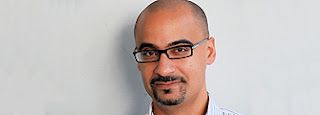Reading is a Debt We Owe to a Collective

A book is a gift. No matter how poorly written it is, or if we don’t like it—we think it’s simplistic or if we find it to be odious—someone did spend time working on this. Someone did take a part of their lives to make this happen. Even in the most kind of nonsense, banal books there is a note of grace in it…As a kid, I was just reading. And I never lost that sense that sometimes there are terrible books which for me produce really pleasing results in my mind and in my heart. And sometimes there are incredibly brilliant books that don’t do any of that. And I think I had to have a much more generous sense of what reading means and what it can do.
...
If you think about it, curses are narratives. They’re narratives that bind us and follow us. They’re shadows that even when we think we’ve escaped them, they’re there. History follows the same pattern. We can deny all the history we want and yet history will still reach up across time and shape our choices or behavior and our possibilities. And I think that it’s hard to be a person and not want to be independent from all those invisible forces that we can’t even begin to grasp. Through the tales that we tell ourselves, the ones that exclude those invisible forces—whether it’s history, curses, our ancestors, our parents, our earlier selves—are those stories more worthy, are they more beneficial than the stories that accept this, that embrace this, that in some ways make it deterministic—in other words, that we are cursed. Which is the better, more productive, more human story? We’re cursed or there are no such things as curses?
... In the end, why is it that it’s okay for me to have been a little person and I’ll use that to explain my world and to be like, this is why I act this way and this is why I resist and this is why I’ve struggled so hard. But what’s always extraordinary is that we’re usually not very tolerant of other small lives, even if our lives have been small. Sometimes we’ll be tolerant of a small life and the next thing we know, we’re no longer tolerant. One of the thing Oscar’s character keeps asking is, Is being human something that you do once—you make one choice and it proves that you’re human—or is it a choice you have to keep making through your whole life? And what an incredible struggle, what an incredible challenge, what a journey that is.
In the end, why is it that it’s okay for me to have been a little person and I’ll use that to explain my world and to be like, this is why I act this way and this is why I resist and this is why I’ve struggled so hard. But what’s always extraordinary is that we’re usually not very tolerant of other small lives, even if our lives have been small. Sometimes we’ll be tolerant of a small life and the next thing we know, we’re no longer tolerant. One of the thing Oscar’s character keeps asking is, Is being human something that you do once—you make one choice and it proves that you’re human—or is it a choice you have to keep making through your whole life? And what an incredible struggle, what an incredible challenge, what a journey that is.
...
What I want is people to read and remember that reading, while we may practice alone, in solitude, it arose out of a collective learning and out of a collective exchange…Return to the notion that it’s not just you, a monk alone in a chamber. That it’s you reading out of a collective, from a collective. I love that idea because I never forgot how I learned to read…With a group of people, with teachers. I learned to read in Kindergarten when I first moved to the United States, watching other kids make mistakes, do things right, and having access to a group of teachers who were committed at that moment. And in It’s a Wonderful Life, do you remember the husband of the teacher who punches [Jimmy Stewart] goes, “My wife taught your children to read.” And it is a debt. Reading is a debt we owe to a collective, while we may practice it alone.





